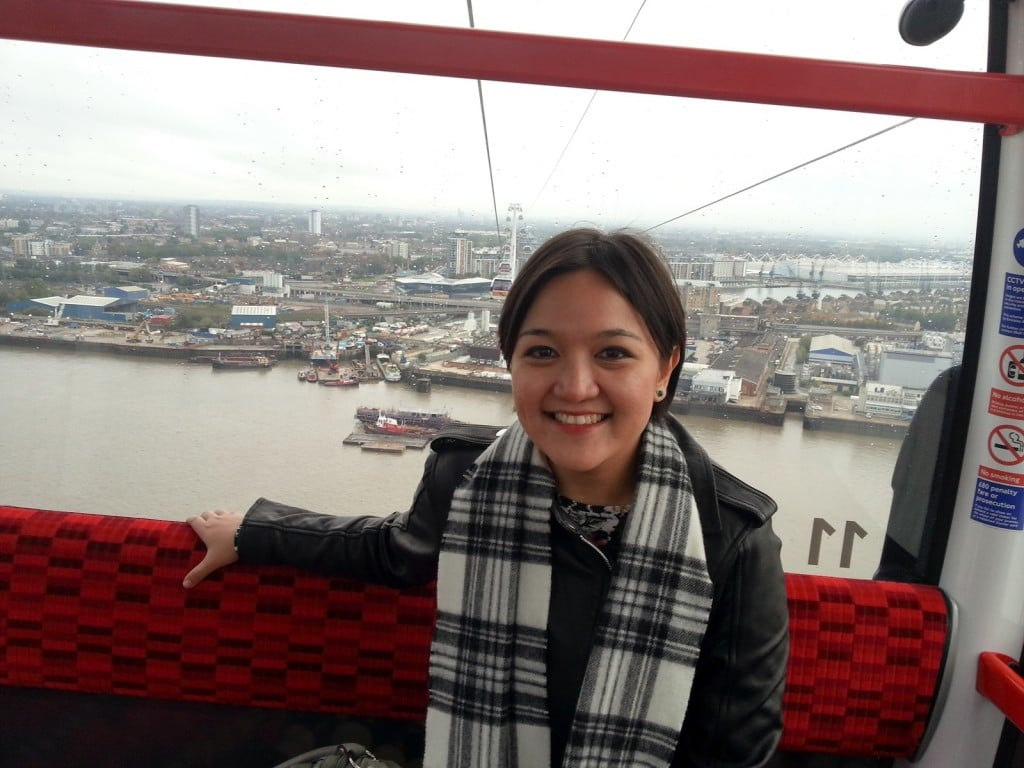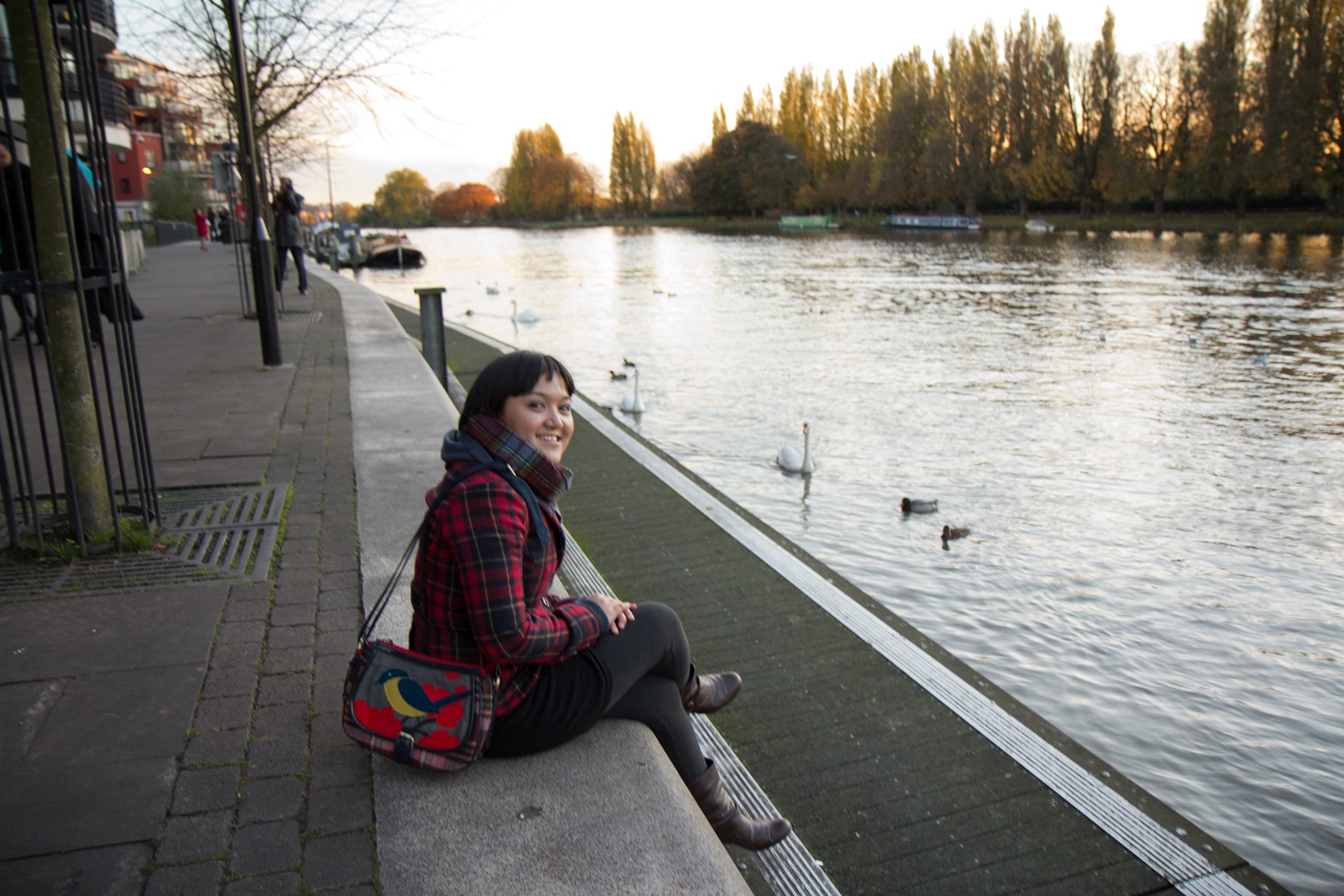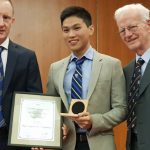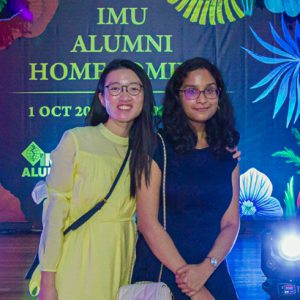Intan Zuhaslin Dzulkefli’s interests in pharmacy were piqued by the pharmacist who was in charge of an apothecary that she visited in Seremban. Intan will always remember this pharmacist’s kindness and profound knowledge regarding medicines and that sealed her interest in pharmacy from then onwards. She started studying for her degree in pharmacy at the International Medical University (IMU) in 2003, transferred to University of Strathclyde, Scotland after 2.5 years and graduated with a Master of Pharmacy (MPharm) a year later, in 2006. After graduating, Intan returned to Malaysia to complete her pre-registration training in Malaysia and serve her compulsory government service. She then decided to return to UK to experience the way pharmacy is practised in another country. Intan, who is married and has a daughter, shares with us her journey to obtaining a placement with the Royal Cornwall Hospital Trusts in UK. “Upon completing my matriculation, I applied for the MPharm course that was offered by IMU. There are two reasons for this decision; one was the fact that having lived in Seremban where the IMU Clinical School is located, I have always been aware of its good reputation. The second one is the partnership between IMU and the University of Strathclyde which I found to be a brilliant combination. The syllabus that we were thought during our time in IMU corresponded to the one in the UK and therefore the transition between the time in IMU and our transfer to Strathclyde was seamless, making it very easy for us to adjust to learning in a new place. The IMU lecturers and staffs had always been supportive in every way since day one of our enrolment and I have always appreciated the dedication that was given to us by IMU. There are many memories that will be forever carved and etched in my mind regarding my time in both IMU and Strathclyde. The one that stood out the most was the camaraderie, not only between myself and fellow students which had since evolved into lifelong friendships (I even married one of them) but also the relationship we have with the lecturers. I am proud to say that even now, the relationship remains and I have received much support and encouragement upon my decision to return to the UK.  Upon graduation in 2006, I began my pre-registration training with the Kementerian Kesihatan Malaysia in Hospital Tuanku Ja’afar in my hometown in Seremban. I continued working in the same hospital for two years as a Ward Pharmacist and a Therapeutic Drug Monitoring (TDM) pharmacist before being transferred to the Outpatient Department (OPD) for a year. I was then transferred to Klinik Kesihatan Jelai for a year as a Methadone Pharmacist before ending my service in Hospital Tuanku Ampuan Najihah. I decided to return to the UK to improve myself as a pharmacist and because I desire to experience the way that pharmacy is practised in another country. The passion I have for travelling had partly spurred me towards my decision to continue my professional practice in the United Kingdom. It also felt like a natural progression to do so since I have an MPharm degree. In order for me to be eligible for registration with the General Pharmaceutical Council (GPhC), I have to enrol in the Overseas Pharmacists Assessment Programme (OSPAP) course. It was a humbling experience upon my return to the UK to note that many things have changed since my graduation in 2006. For one, applying for a pre-registration placement with the NHS was an experience I could never forget because the number of places available under the NHS has significantly reduced over the years. The education that I received from the MPharm course has helped me to be confident in my undertaking of the OSPAP course. Despite the changes in MPharm syllabus over the years, the core principle of course is still the same and this fact made it incredibly easy for me to slip back into the role of a student. The confidence I have developed over the years from my time in IMU has helped me to be able to convey myself more effectively in the interview process for the pre-registration position with the NHS. After having gone through five interviews with various Trusts, I have been very fortunate to be offered a placement with the Royal Cornwall Hospital Trusts. My advice for the current pharmacy students is they must have passion and appreciation for the field of Pharmacy and know that they are very fortunate to have chosen a very comprehensive course that would lead to varied career choices later in life and secondly to enjoy their journey as students. There will be ups and downs in the course of attaining a degree but in the end it will all be worth it.”
Upon graduation in 2006, I began my pre-registration training with the Kementerian Kesihatan Malaysia in Hospital Tuanku Ja’afar in my hometown in Seremban. I continued working in the same hospital for two years as a Ward Pharmacist and a Therapeutic Drug Monitoring (TDM) pharmacist before being transferred to the Outpatient Department (OPD) for a year. I was then transferred to Klinik Kesihatan Jelai for a year as a Methadone Pharmacist before ending my service in Hospital Tuanku Ampuan Najihah. I decided to return to the UK to improve myself as a pharmacist and because I desire to experience the way that pharmacy is practised in another country. The passion I have for travelling had partly spurred me towards my decision to continue my professional practice in the United Kingdom. It also felt like a natural progression to do so since I have an MPharm degree. In order for me to be eligible for registration with the General Pharmaceutical Council (GPhC), I have to enrol in the Overseas Pharmacists Assessment Programme (OSPAP) course. It was a humbling experience upon my return to the UK to note that many things have changed since my graduation in 2006. For one, applying for a pre-registration placement with the NHS was an experience I could never forget because the number of places available under the NHS has significantly reduced over the years. The education that I received from the MPharm course has helped me to be confident in my undertaking of the OSPAP course. Despite the changes in MPharm syllabus over the years, the core principle of course is still the same and this fact made it incredibly easy for me to slip back into the role of a student. The confidence I have developed over the years from my time in IMU has helped me to be able to convey myself more effectively in the interview process for the pre-registration position with the NHS. After having gone through five interviews with various Trusts, I have been very fortunate to be offered a placement with the Royal Cornwall Hospital Trusts. My advice for the current pharmacy students is they must have passion and appreciation for the field of Pharmacy and know that they are very fortunate to have chosen a very comprehensive course that would lead to varied career choices later in life and secondly to enjoy their journey as students. There will be ups and downs in the course of attaining a degree but in the end it will all be worth it.”









